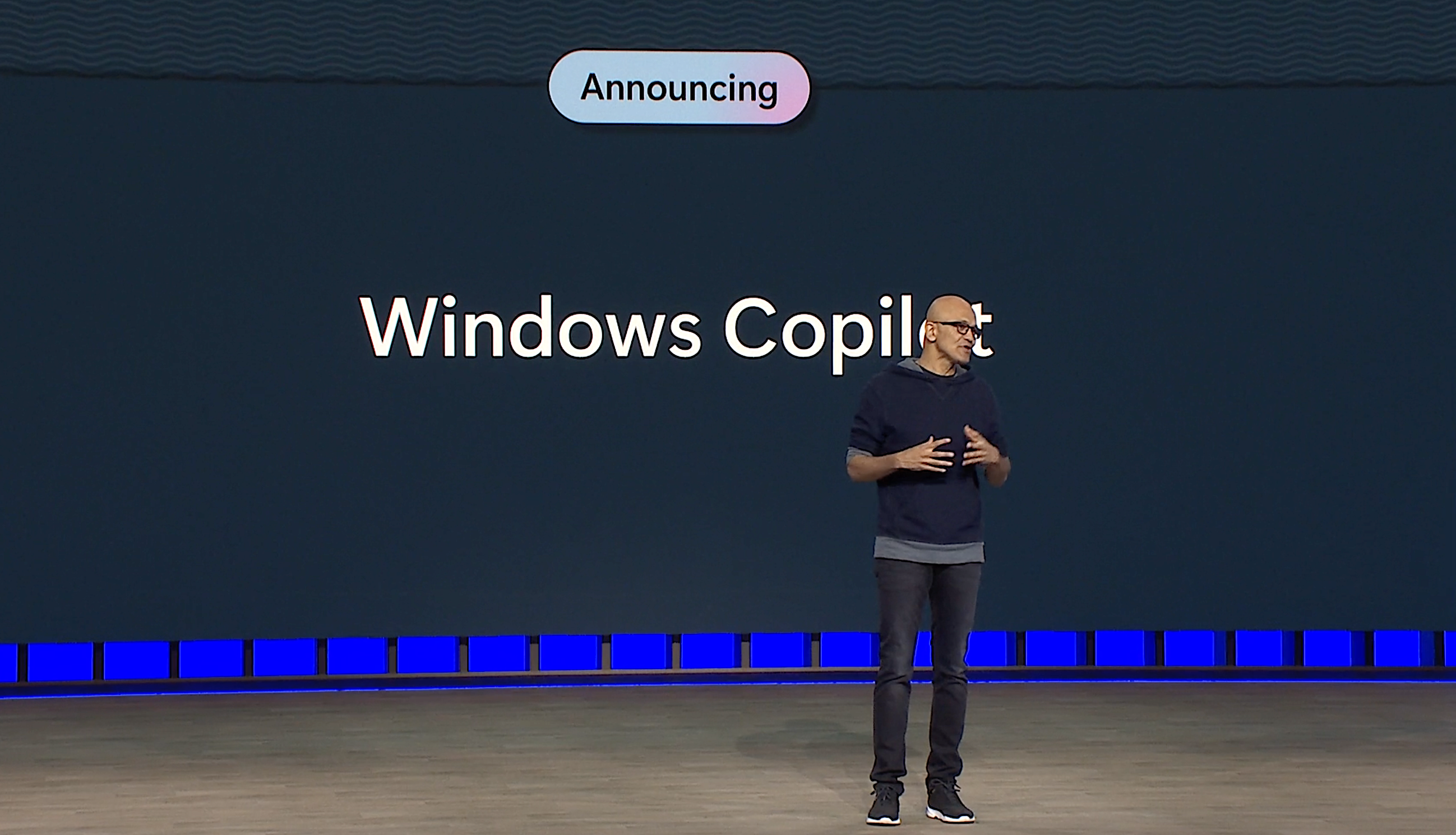 AI
AI
 AI
AI
 AI
AI
Windows 11 customers will soon get access to an artificial intelligence companion that can understand them and interact with their applications using OpenAI LP’s technology with Windows Copilot, Microsoft Corp. announced today at its Build developer conference.
With Windows Copilot, users gain access to a generative AI that can understand natural language conversations and provide personalized assistance in Windows 11 across applications. It’s centralized within the Windows user interface and accessible via a button on the Windows taskbar that opens up a Copilot sidebar, where users can then query the AI.
“Once open, the Windows Copilot sidebar stays consistent across your apps, programs, and windows, always available to act as your personal assistant,” said Panos Panay, chief product officer at Microsoft, said in a blog post. “It makes every user a power user, helping you take action, customize your settings, and seamlessly connect across your favorite apps.”
Powered by OpenAI’s GPT-4 technology, which underlies Bing Chat, users will be able to ask the AI a large range of questions about anything they need. For example, they could have the Copilot respond with potential recipes for dinner, or the nearest takeout place to order from along with takeout menus. If the user wanted to contact someone in Japan, the Copilot could let them know what time it was in Tokyo and even assist with travel plans.
Windows Copilot is even aware of the context of what’s on screen, including running applications, to help users get more relevant answers. It can be docked on the side of the screen as a sidebar that stays persistent even as users launch apps and remains there to provide assistance as they continue about their work and day.
The AI is also capable of automating certain actions in Windows, including opening control panels and changing system settings on the user’s behalf. It can also open relevant apps for users, for displaying and editing documents, playing a playlist and more.
This is similar to an update coming to the Edge browser, which integrated a Bing Chat sidebar that can also automate certain actions on the user’s behalf in the browser. If a user wanted to watch a particular movie streaming online, for example, she could type, “I want to watch the new Avengers movie,” and Edge would discover the movie and then begin playing it. Other potential actions could include changing settings within the browser, such as altering cookie settings or opening the bookmarks menu.
OpenAI recently introduced ChatGPT plugins and today Microsoft announced plugin adoption across its entire ecosystem for first- and third-party plugins, including the upcoming Windows Copilot. Plugins allow developers to provide the AI access to third-party software and services, which will open up new ways for users to interact with their software and brands. Example plugins could include highly responsive maps for trip planning, personalizing playlists, and planning a meal and having it delivered.
Windows Copilot will become available for preview for Windows 11 in June, according to Microsoft.
As Windows becomes the landing zone for AI, the Microsoft Store is also opening up for AI experiences to accommodate developers beginning to build more apps that feature the technology.
First and foremost, Microsoft announced the “AI Hub,” a new curated section where the Windows team will promote AI experiences developed by the community and Microsoft. It will also be used to help educate Windows users on how to use AI apps productively and safely in their everyday workflows.
All content added to the Microsoft Store will be tested for security, family safety and device compatibility before it is added. As a result, users can be certain that they are always in control when they install it on their machines.
A new feature coming soon to the Microsoft Store is AI summaries of customer reviews that will give concise blurbs about apps directly for customer consideration right where they need it. Too often, app customers find themselves daunted by popular apps that might have thousands of reviews and attempting to comb through them can take a great deal of time. With AI-generated review summaries, customers can see at the top line an idea of what they might be getting into.
Coming soon for preview, developers will be able to use AI to auto-generate keyword search tags for their apps in the store. This takes the burden of coming up with their own best possible tags, which can often be one of the hardest things for a developer who just wants to code and not market an app. Using AI to consume metadata, as well as other discoverability signals, Microsoft will provide AI-generated keywords in the Partner Center.
THANK YOU